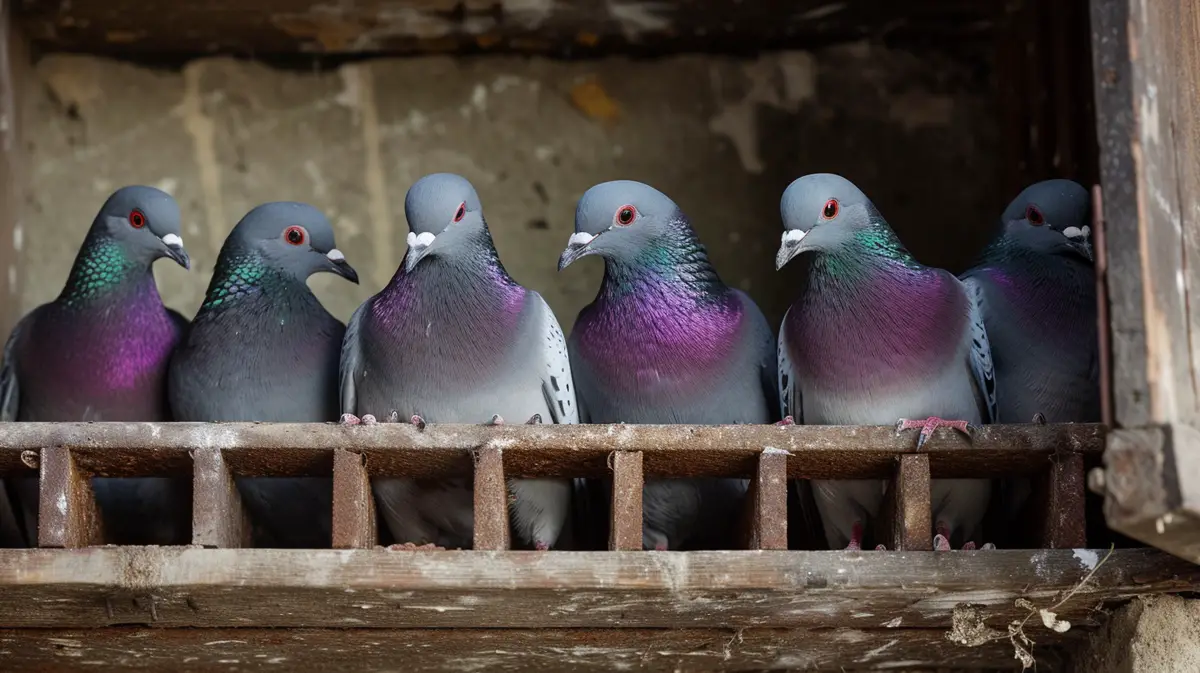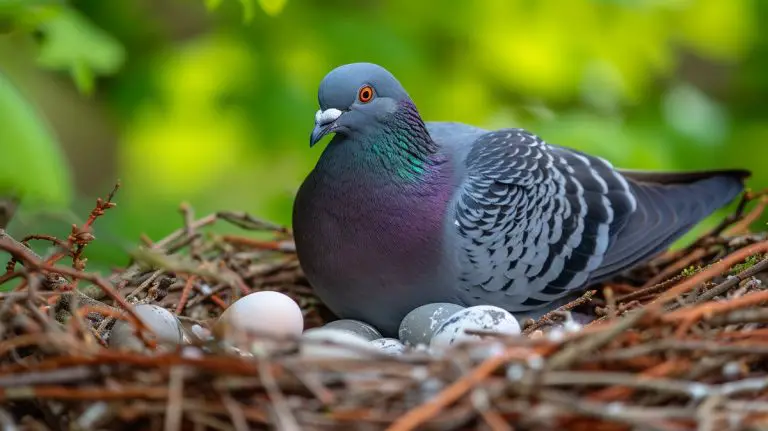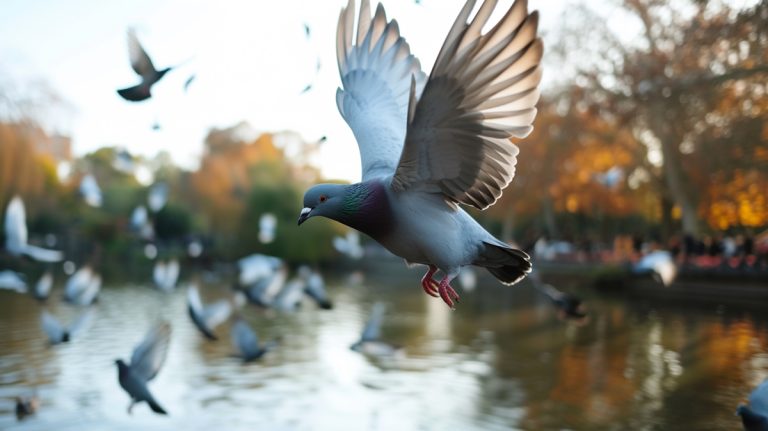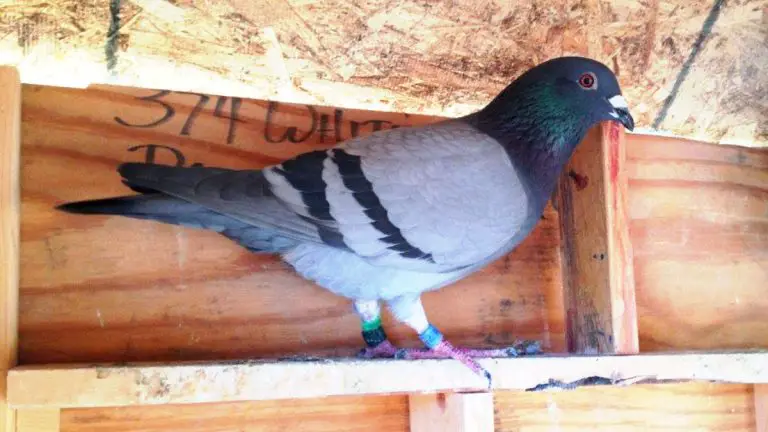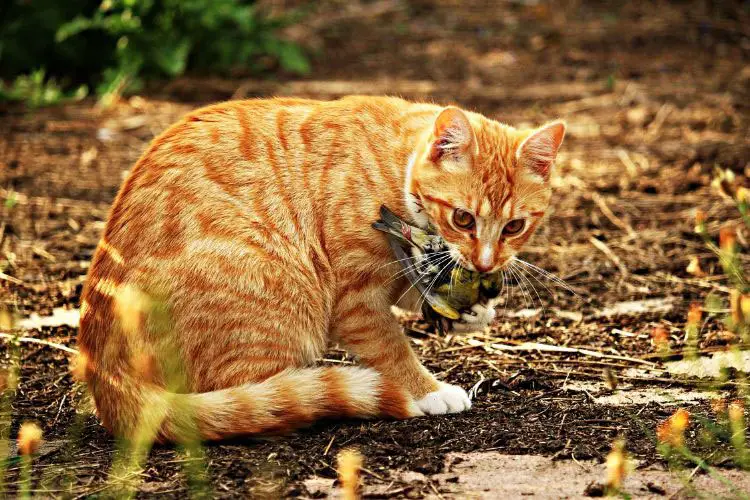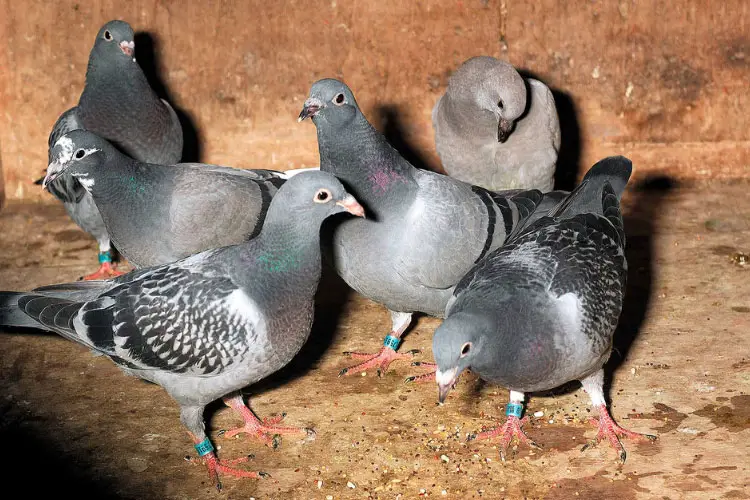Pigeon Cost Factors & Market Influences
Are you considering adding a pigeon to your pet collection? Or perhaps you’re a bird enthusiast looking to expand your flock? Whatever the case may be, one important factor to consider is the cost of pigeons. In this article, I’ll break down the various factors that can influence the price of pigeons, from breed and color to age and pedigree. Whether you’re on a budget or willing to splurge, understanding the pricing dynamics will help you make an informed decision and find the perfect pigeon that fits both your preferences and your wallet.
Factors Affecting Pigeon Price
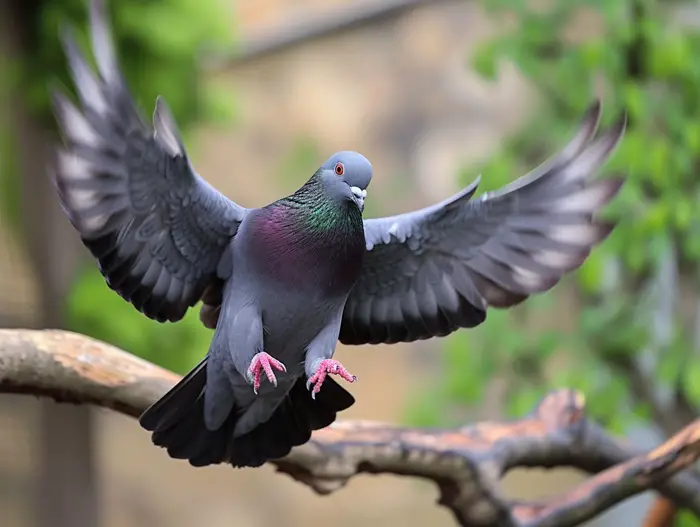
When considering purchasing a pigeon, it’s important to understand that several factors can influence its price. Here are some key aspects that can affect the cost of pigeons:
- Breed: Different pigeon breeds have varying price ranges. Some breeds are rarer or more sought after, which can drive up their price. For example, show pigeons like the Fantail or the English Pouter tend to be more expensive due to their unique appearance.
- Color: The color of a pigeon’s feathers can also impact its price. Some colors, such as pure white or rare, eye-catching patterns, are more desirable to collectors and enthusiasts. These pigeons often command a higher price due to their unique coloring and aesthetic appeal.
- Age: The age of a pigeon can be another determining factor in its price. Younger pigeons are generally more affordable, while older, more mature birds with proven breeding capabilities can be priced higher. Breeders often charge a premium for pigeons that are in their prime reproductive years.
- Pedigree: Pigeons with a documented lineage, known as pedigreed pigeons, tend to have a higher price tag. The pedigree provides information about the bird’s ancestry, performance history, and genetic traits. Pigeon breeders and enthusiasts value pigeons with strong pedigrees, as they are seen as a guarantee of quality and potential breeding success.
Breed and Color
When it comes to the cost of pigeons, the breed and color are two important factors to consider. Different breeds and colors can have a significant impact on the price of a pigeon.
The breed of a pigeon determines its characteristics, such as size, shape, and behavior. Some breeds are more expensive than others due to their rarity or unique features. For example, fancy pigeons with elaborate feather patterns or distinctive physical attributes tend to have higher price tags.
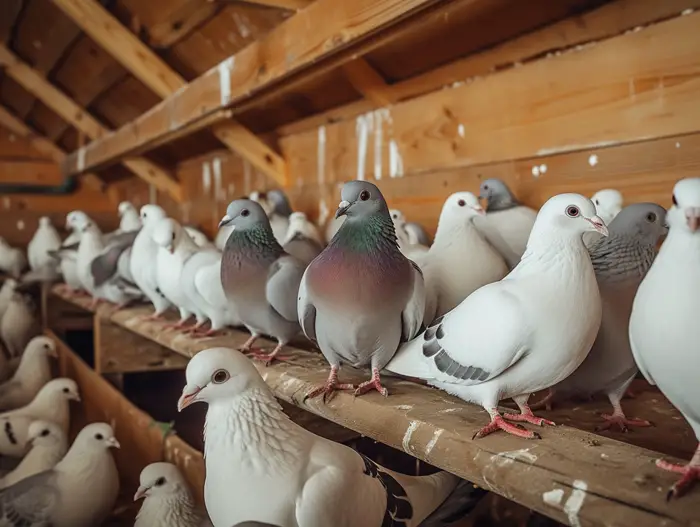
Here are a few popular pigeon breeds and their price ranges:
- Homing pigeons: These pigeons are known for their exceptional navigation skills and are commonly used in homing and racing competitions. The price of homing pigeons can range from $20 to $200 depending on their lineage and performance record.
- Fantail pigeons: With their elegant fan-shaped tails, fantail pigeons are a favorite among bird enthusiasts. The cost of fantail pigeons can range from $30 to $100 based on their color variations and show quality.
- Indian Fantail pigeons: This breed of pigeons originated in India and is known for its striking color patterns and a high degree of feather density. The price of Indian Fantail pigeons can vary from $50 to $150 depending on their color genetics and pedigree.
Apart from breed, the color of a pigeon’s feathers can also impact its price. Pigeons come in a wide range of colors, including white, black, gray, brown, and various combinations. Some color variations, such as rare or unique color patterns, can significantly increase the pigeon’s value.
Here are a few examples of color variations and their potential impact on the price:
- Albino pigeons: Pigeons with pure white feathers and red or pink eyes are considered albino. Albino pigeons are relatively rare, and their unique appearance makes them highly sought after. As a result, the price of albino pigeons can be significantly higher, ranging from $100 to $500 or more.
- Rare color patterns: Pigeons with rare color patterns, such as pied (patches of color) or mottled (spotty) markings, can also command higher prices. The specific pricing for these unique color variations can vary, but they often fall in the $50 to $200 range.
Age and Health
As I continue exploring the factors influencing the cost of pigeons, it’s important to consider their age and health. These factors can play a significant role in determining the price of a pigeon.
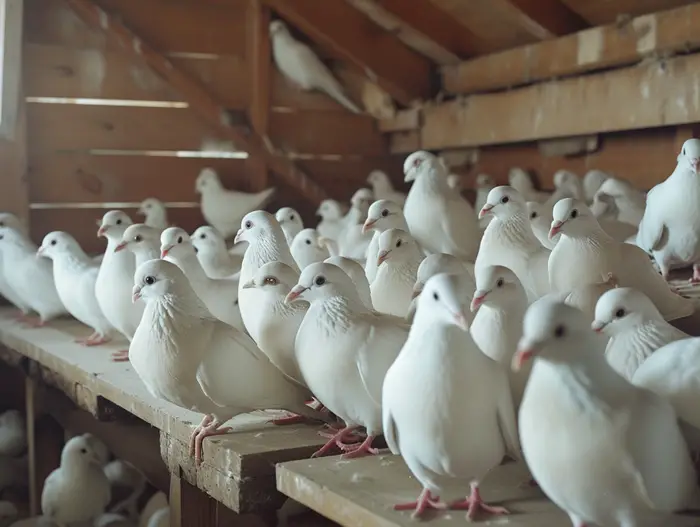
Age
When it comes to age, younger pigeons tend to be more expensive than their older counterparts. This is because younger pigeons have the potential for longer lives and can be trained more easily. Additionally, younger pigeons are more likely to be bred from top-quality bloodlines, which can further drive up their price. On the other hand, older pigeons may have already proven themselves in races or other competitions, increasing their value.
Health
The health of a pigeon is another crucial factor to consider. A healthy pigeon is likely to have a longer lifespan and perform better in races or other events. Pigeons with excellent health records, including regular vaccinations and a clean bill of health from a veterinarian, can come with a higher price tag. On the other hand, pigeons with past health issues or genetic predispositions to certain diseases may be priced lower.
It’s worth noting that the cost of pigeons can also be influenced by the breeder’s reputation and experience. Established breeders with a track record of producing high-quality, healthy pigeons may charge more for their birds.
Understanding the impact of age and health on pigeon prices can help individuals make informed decisions when it comes to purchasing these feathered companions. Whether you’re looking for a young and trainable pigeon or a seasoned competitor, considering these factors will ensure that you find the right pigeon for your needs.
Pedigree and Bloodlines
When it comes to the cost of pigeons, pedigree and bloodlines play a significant role. Just like with other animals, the lineage and genetic background of a pigeon can greatly influence its price. Here is why pedigree and bloodlines are important factors to consider:
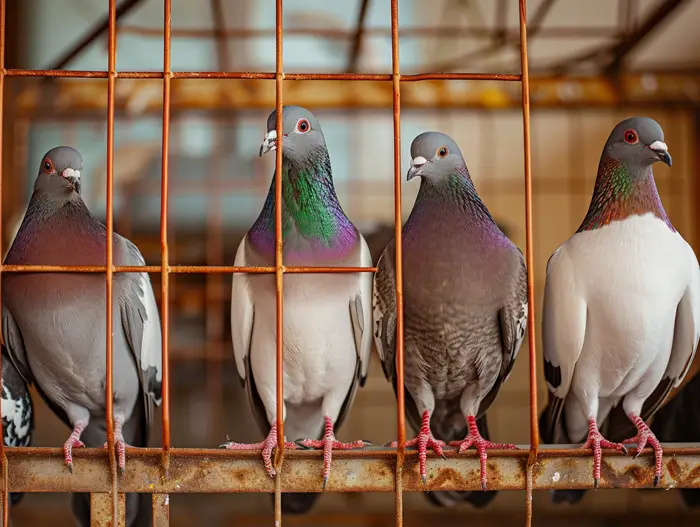
Quality Assurance
Pigeons with exceptional pedigrees often come from top-quality bloodlines. Breeders carefully select parents based on their performance records and desirable traits, such as speed, endurance, and intelligence. As a result, the offspring inherit these favorable characteristics. Pigeons with renowned bloodlines have a higher chance of excelling in races, exhibitions, or other competitive events. These pigeons are in high demand, which can drive up their price.
Longevity and Health
Pigeons with strong pedigrees tend to have better overall health. Through selective breeding, breeders eliminate genetic weaknesses and increase the bird’s resilience to diseases and common health issues. Pigeons with robust bloodlines are more likely to have longer lifespans, ensuring years of companionship and potential breeding success. A healthy pigeon not only has better performance but is also less prone to medical expenses, making it a valuable investment.
Breeder’s Expertise
Reputable breeders invest considerable time and effort in maintaining and improving their bloodlines. They have years of experience in carefully selecting the best pairings and managing the breeding process. Their expertise ensures that the resulting pigeons have the best chance of success. When purchasing from a well-known breeder, you are not just buying a pigeon; you are obtaining a bird that has been bred with knowledge, care, and passion. This expertise and reputation can significantly impact the cost of pigeons.
Understanding the importance of pedigree and bloodlines can help you make an informed decision when it comes to purchasing pigeons. Breeders breed pigeons with exceptional lineages to produce offspring with desirable traits and long-term health benefits. However, it’s essential to balance these factors with your specific needs and budget. By considering all aspects, you can find a pigeon that meets your requirements and brings joy for years to come.
Pigeon Market and Demand
Now that we understand how pedigree and bloodlines can impact the cost of pigeons, let’s take a closer look at the factors that influence the pigeon market and the demand for these birds.
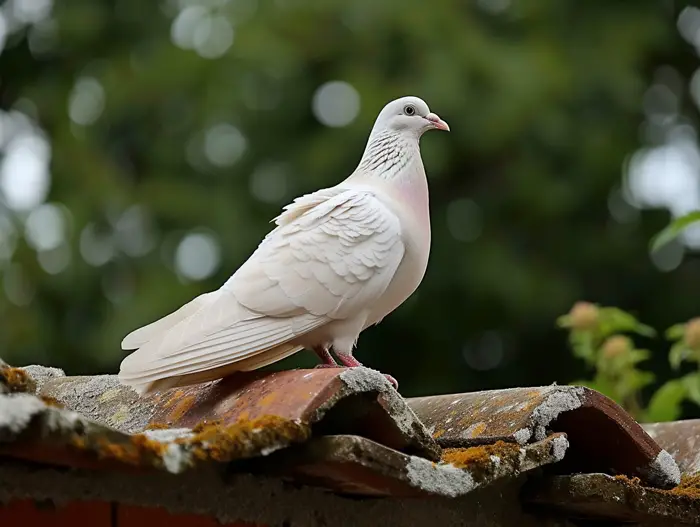
Popularity and Diversity
The pigeon market experiences fluctuations based on the general popularity and demand for pigeons. Pigeons have been domesticated for thousands of years and have served various purposes, including racing, homing, and exhibition.
Did you know? Pigeons are highly intelligent animals and have been used throughout history as messengers and signal carriers due to their exceptional homing instincts.
The popularity of pigeon racing and the desire to own pigeons with exceptional racing abilities can significantly influence the demand and, subsequently, the cost of pigeons.
Breeding and Breeder Reputation
The reputation of breeders also plays a crucial role in the pigeon market. Reputable breeders invest considerable time and effort into breeding pigeons with desirable traits, such as superior racing performance or specific physical characteristics.
These breeders carefully select and pair pigeons with exceptional pedigrees, ensuring the continuation of high-quality bloodlines. Pigeons with strong pedigrees and impressive racing track records are highly sought after, commanding higher prices in the market.
External Factors
External factors, such as economic conditions and geographic location, can also contribute to the cost of pigeons. In areas where pigeon racing is particularly popular, there may be more breeders and a higher demand, leading to increased prices. Similarly, economic stability and disposable income levels can influence the willingness of individuals to invest in expensive pigeons.
Conclusion
Understanding the various factors that influence the pigeon market and the demand for these birds is essential for those interested in purchasing pigeons. Popularity, breeding, breeder reputation, and external factors all come together to shape the cost of pigeons in the market. By considering these factors, individuals can make informed decisions when adding pigeons to their collection or participating in racing events.
Conclusion
The cost of pigeons can vary depending on several factors. As discussed in the article, pedigree and bloodlines play a significant role in determining the price of these birds. However, other factors also come into play, such as the popularity and diversity of pigeons, the reputation of breeders, and external factors like economic conditions and geographic location.
Understanding these factors is crucial for anyone interested in purchasing pigeons or participating in racing events. By considering the pedigree and bloodlines, as well as the market demand and other influencing factors, individuals can make informed decisions about the cost of pigeons.
Whether you’re a pigeon enthusiast or a potential buyer, it’s essential to research and stay updated on the current pigeon market trends. This knowledge will help you make the best choices when it comes to acquiring pigeons that meet your specific requirements and budget.
Remember, the cost of pigeons is not solely determined by one factor but is influenced by a combination of factors. By understanding these factors, you can navigate the pigeon market with confidence and make informed decisions that align with your goals and preferences.
